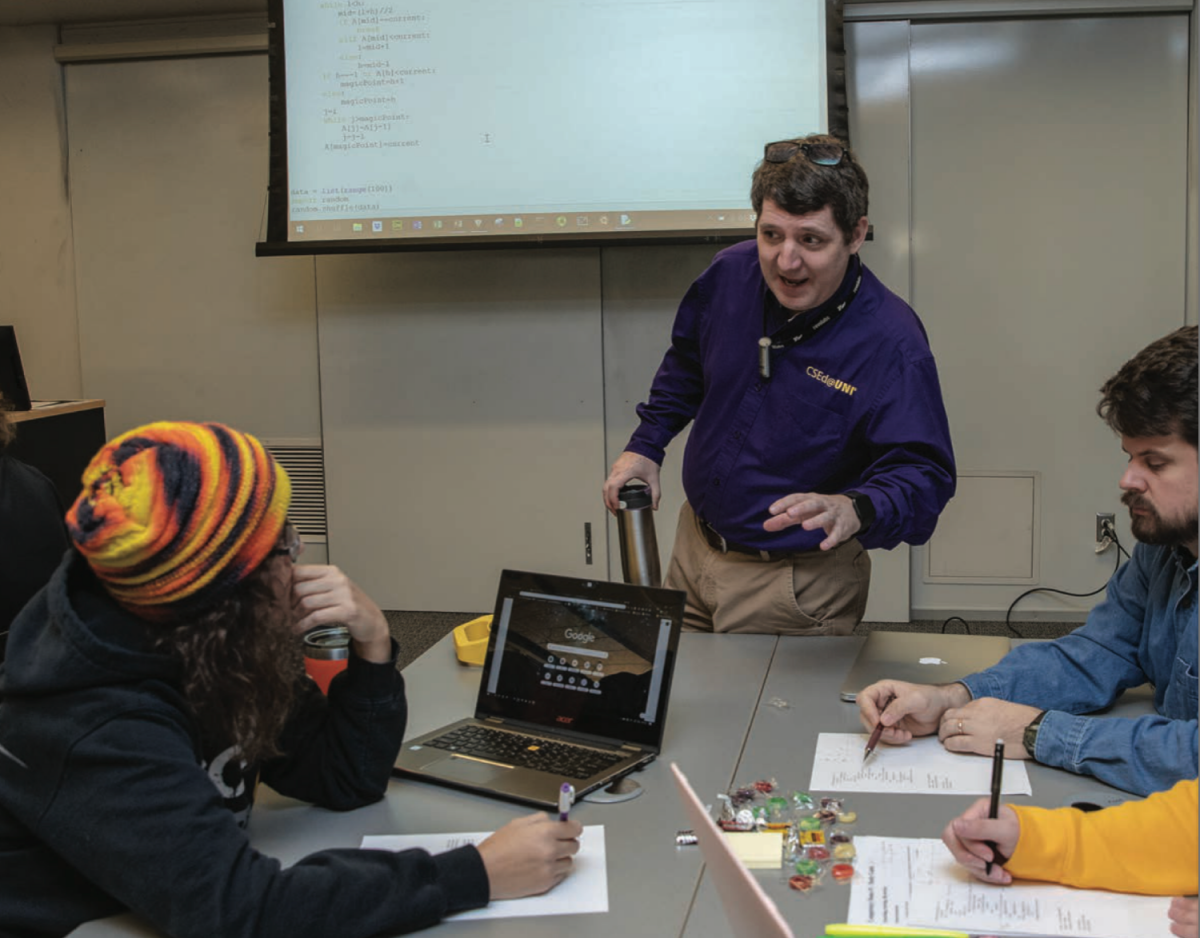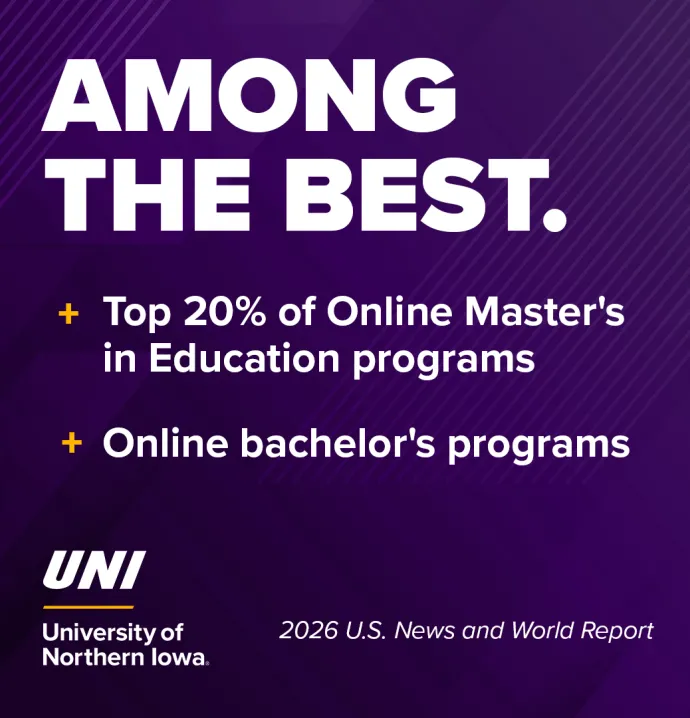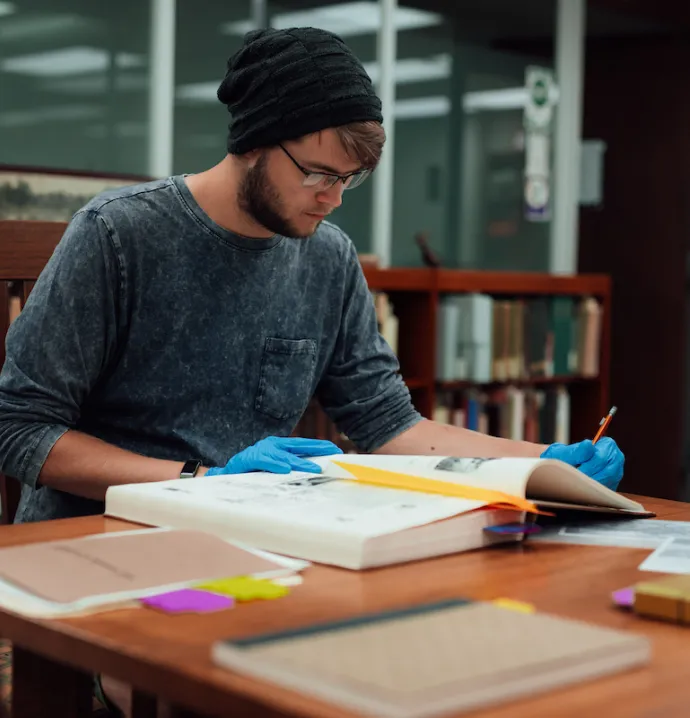Grant of nearly $1 million helps UNI expand computer science education program for teachers
Grant of nearly $1 million helps UNI expand computer science education program for teachers

The University of Northern Iowa is doing its part to equip teachers with computer science skills they can pass on to their students, thanks to a three-year grant of nearly $1 million from the National Science Foundation (NSF).
The grant will allow Iowa teachers to go through an 18-month program made up of five computer science courses. At the end of the 18 months, a recommendation is made to the State Board of Educational Examiners for the participating teachers to receive their secondary computer science endorsements, qualifying them to teach computer science to grades five through 12.
“We really firmly believe we have a strong program,” said Ben Schafer, professor in the Department of Computer Science and program coordinator for the Computer Science Education program at UNI (CSEd@UNI). “We think that the five courses we've built are well designed, well executed and really do help teachers become better computer science teachers. When you get this kind of an award from the NSF with that kind of magnitude, that's external validation that what you're doing is something that other people see as being strong and meaningful as well.”
Ninety percent of the funding from the grant goes to UNI while the remaining 10% goes to partners at the University of Virginia who will be evaluating the effectiveness of the program.
The timing of offering this new program to increase computer science education intentionally corresponds with the State of Iowa pushing for more computer science to be incorporated into K-12 education. As a result of recent legislation, all high schools must now offer at least one one-semester course in computer science. Starting July 1, 2023, every elementary school must provide computer science instruction in at least one grade level, and every middle school must provide computer science instruction in either seventh or eighth grade.
“Computer science, as a discipline, is increasingly one of those things that every student should have at least a base familiarity with,” said Schafer.
He likens requiring computer science as part of education to the way that English, social studies, science and math are required — they are all subjects people need to understand to be successful members of society. Schafer also believes UNI is the perfect place to offer this type of program. In fact, UNI is one of only two universities in the state to offer a full pathway to this endorsement.
“UNI has a long history of delivering quality education at both the in-service and the pre-service level, and we can leverage that in designing this new program,” he said. “We have an ability here at UNI to offer a program that most other schools in the state just can't offer because we have the right mix of content specialists and education specialists.”
The first cohort of up to 90 teachers will take courses from June 2023 to December 2024, and the second cohort of up to 180 teachers will take courses from June 2024 to December 2025. Many of the teachers will be able to participate in the program at no cost or at reduced cost thanks to scholarships made possible by the grant funding.
The coursework for the classes is online, including virtual meetings between the students and professors.
A crucial part of the learning process for the participants is the communities of practice (CoPs) which will take place monthly with the local Area Education Agencies (AEAs). The idea for these communities of practice stems from UNI’s pilot computer science education program that was funded by the NSF in 2018 and had a similar design to this new program. The pilot program’s cohort met at UNI campus.
“Every single teacher from the first cohort who participated in our evaluation said that these were the best part of the program,” said Schafer. “Teachers learned more because of the communities of practice.”
These CoPs also give the teachers time to talk about what’s going on in their classrooms and discuss their emotional well-being as educators.
By moving these CoPs from UNI campus to AEAs, Schafer said CSED@UNI is able to expand the program and offer it to more teachers throughout the state. The initial cohort will be partnered with the Central Rivers AEA, Grant Wood AEA and Northwest AEA. The hope is the second cohort will partner with the remaining six AEAs.
Not only does this program teach the participants computer science concepts, but it also educates them on how to teach it.
“Teachers have felt like our program makes them better teachers because we're not only giving them a solid foundation in a number of topics in computer science, but we really are playing off of the strengths of UNI,” said Schafer. “We’re trying to educate them on some teaching styles that many educators have never experienced before.”
Schafer said that the initial program attracted a wide variety of educators who teach everything from math to business to social studies. Some of them have been brand-new to computer science while others already have experience teaching computer science.
CSEd@UNI is taking applications for their program Dec. 1-Jan. 31, 2023, with scholarship recipients being announced at the end of January.




